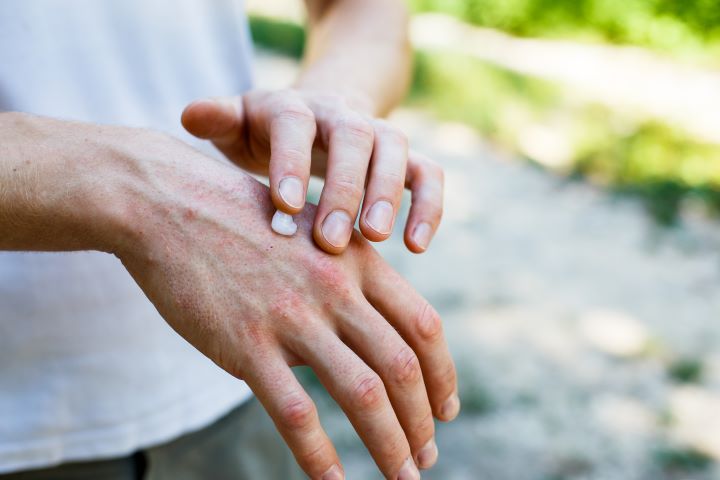Exploring the Shocking Factors Behind Atopic Dermatitis Breakouts
Atopic dermatitis may appear as a routine skin concern, but the triggers behind its flare-ups are anything but simple. From environmental irritants to immune responses, the causes often go unnoticed until symptoms intensify. Individuals living with this condition frequently face cycles of discomfort that disrupt daily life and emotional well-being. Understanding the hidden contributors behind breakouts can help uncover patterns that deserve more attention. A deeper look at these factors may offer clarity in a situation where uncertainty is common.

What Triggers Atopic Dermatitis Flare-Ups?
Atopic dermatitis flare-ups can be triggered by a variety of factors, often working in combination. Common triggers include allergens such as pollen, dust mites, and pet dander. Certain foods, particularly dairy products, eggs, nuts, and soy, can also provoke symptoms in some individuals. Skin irritants like harsh soaps, detergents, and fragrances are frequent culprits. Additionally, changes in temperature and humidity levels can lead to skin dryness and subsequent flare-ups.
How Do Environmental Factors Affect Atopic Dermatitis?
Environmental factors play a significant role in atopic dermatitis management. Air pollution, for instance, can exacerbate symptoms by introducing irritants to the skin. Seasonal changes often bring about flare-ups, with many patients reporting worsening symptoms during winter months due to dry air and increased indoor heating. Conversely, excessive sweating in hot weather can also trigger itching and inflammation. Exposure to cigarette smoke, whether firsthand or secondhand, has been linked to increased severity of atopic dermatitis symptoms.
Can Stress Make Atopic Dermatitis Worse?
Stress is indeed a powerful trigger for atopic dermatitis flare-ups. When the body experiences stress, it releases hormones like cortisol, which can disrupt the skin’s barrier function and increase inflammation. This can lead to itching, redness, and other symptoms associated with atopic dermatitis. Moreover, the stress of dealing with the condition itself can create a vicious cycle, where anxiety about flare-ups actually contributes to their occurrence. Stress management techniques, such as meditation, deep breathing exercises, and regular physical activity, can be beneficial in reducing the frequency and severity of stress-induced flare-ups.
What Role Does The Immune System Play In This Condition?
The immune system plays a central role in atopic dermatitis. In individuals with this condition, the immune response is often overactive, leading to inflammation in the skin even in the absence of harmful pathogens. This heightened immune reactivity can make the skin more sensitive to irritants and allergens. Furthermore, people with atopic dermatitis often have an imbalance in their skin microbiome, which can further compromise the skin’s barrier function and immune response. Research has shown that certain immune system components, such as T cells and cytokines, are particularly involved in the inflammatory processes of atopic dermatitis.
How Can Diet Impact Atopic Dermatitis Symptoms?
Diet can significantly influence atopic dermatitis symptoms, though its effects can vary greatly between individuals. Some studies suggest that a diet rich in anti-inflammatory foods, such as omega-3 fatty acids found in fish and flaxseeds, may help reduce inflammation associated with atopic dermatitis. Probiotics, found in fermented foods or supplements, have shown promise in supporting the immune system and potentially reducing symptom severity. Conversely, foods high in histamine or those that trigger histamine release, such as alcohol, fermented foods, and certain types of fish, may exacerbate symptoms in some people. It’s important to note that food triggers are highly individual, and what affects one person may not affect another.
When Should I Seek Medical Advice For Skin Inflammation?
While mild cases of atopic dermatitis can often be managed at home, certain situations warrant professional medical attention. If over-the-counter treatments fail to provide relief after a few weeks, or if symptoms are severe enough to interfere with daily activities or sleep, it’s time to consult a healthcare provider. Signs of infection, such as increased redness, warmth, swelling, or pus, require immediate medical evaluation. Additionally, if atopic dermatitis symptoms are accompanied by other concerning symptoms like fever or severe fatigue, professional medical advice should be sought promptly. A dermatologist or allergist can provide specialized care, including prescription treatments and personalized management plans.
Atopic dermatitis is a complex condition with many potential triggers and contributing factors. By understanding these hidden influences, individuals can work towards better management of their symptoms and improved overall skin health. Remember, while self-care and lifestyle adjustments can be helpful, professional medical guidance is crucial for developing an effective, personalized treatment plan.
This article is for informational purposes only and should not be considered medical advice. Please consult a qualified healthcare professional for personalized guidance and treatment.




